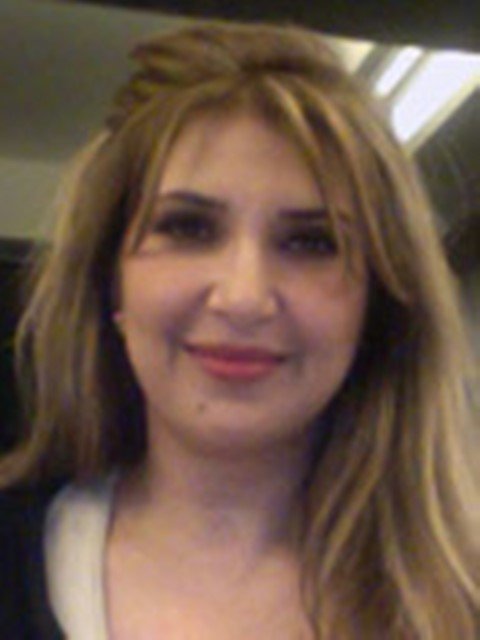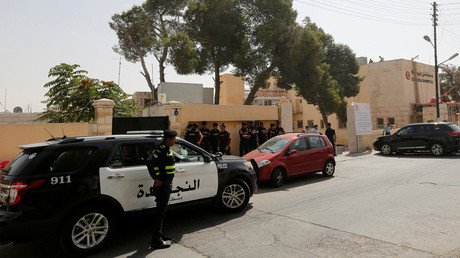Murder of prominent Jordanian writer Nahed Hattar: Who pulled the trigger?
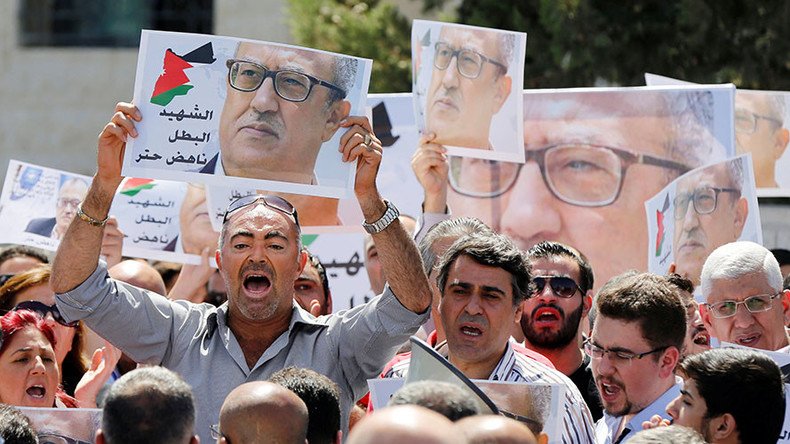
On September 25, prominent Jordanian journalist and thinker Nahed Hattar was shot dead at close range by an extremist as he walked into Amman’s Palace of Justice to face trial for “insulting Islam.”
Nahed’s crime? Sharing a cartoon on Facebook that depicted a depraved extremist issuing orders to a meek God. He didn’t draw the caricature himself – he simply shared it. And he nuanced the post with an important caveat: that this was “ISIS’ God” – not Islam’s.
This is the first time in memory that a Jordanian journalist has been murdered for his views, and it has shaken up a country that prides itself on ‘security’ amidst a neighborhood rife with instability and violence.
The killer, 49 year-old Riad Abdallah, has a checkered past. Nahed’s family said they have learned Abdallah used to fight in Iraq with Al-Qaeda, but was “rehabilitated” upon his return, eventually gaining employment with two government ministries, the Ministry of Awqaf (Endowment and Islamic Affairs) – an unpaid gig – and the ministry of education, where he received a salary and housing.
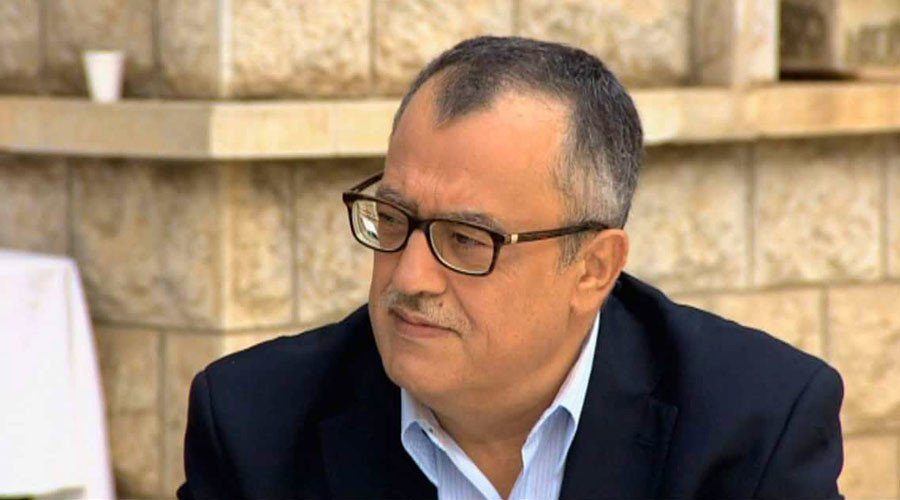
In addition, this known extremist was a part-time preacher at two mosques in Amman.
But Nahed’s brother Majed Hattar says the family’s fight isn’t with the killer, who is a “little thing” in a much larger picture.
Instead, says Majed, with focused fury: “The bullets that killed Nahed Hattar were shot on the day the prime minister gave the order to arrest Nahed Hattar.”
The family is currently assembling a lawsuit to charge various government officials and other entities/individuals for causing Nahed harm and for contributing to the incitement that led to his death.
Among these are the prime minister of Jordan Hani al-Mulki, the interior minister Salameh Hammad, the Amman Governor Khaled Abu Zeid, and the head of general security.
But it isn’t just the government they blame. Nahed’s family also holds responsible religious authorities – both Muslim and Christian – who fanned the flames almost immediately after he posted the now infamous cartoon on Facebook.
Within hours of the post, Al Sabeel, a Muslim Brotherhood (Ikhwan) publication ran a screenshot on its website, censoring the images and language they viewed to be offensive – but more importantly, blacking out Nahed’s explanation that this was “ISIS’ God,” not Islam’s.
The Al Sabeel piece went viral, but readers could not even see the content of the caricature or Nahed’s important caveat.
A few hours later, Prime Minister Mulki instructed his interior minister to arrest Nahed – his 16th arrest by authorities since 1979. A government statement accused him of “inciting sectarian strife” and “insulting religion.” This, the family believes, was the action that emboldened Nahed’s critics – the ones who sought violent reprisals.
What followed takes a big whack at Jordan’s claims to the rule of law and justice. Nahed was incarcerated for a month, during which time – his family says - he was severely mistreated. His sister Kawkab explains that Nahed was beaten so badly by security services in 1998 that he had to have several operations on his stomach, including the removal of two meters of his intestines. “He took medication for this and remained on a special diet until the end,” she says, but was neglected so badly in prison that he ended up in hospital twice during his month-long term.
On both occasions, Nahed was handcuffed and shackled to and from the Al Bashir government hospital. The first time, his situation worsened to the extent that Nahed asked to be returned to his prison cell. When the family appealed for help from Amnesty International and the Red Cross, four doctors were brought in to examine Nahed and agreed that he needed special treatment. But instead, when the doctors left, Kawkab says “they ripped out his IVs, left the needle in his arm, cuffed his hands and feet and placed him in a hospital prison cell. They even put a sign at the base of his bed that read ‘dangerous criminal’.”
On the outside, social media exploded with exactly the kind of incitement against Nahed that officials had accused him of fomenting. Possibly emboldened by the government’s swift reaction against him, Jordanians took to Twitter and Facebook, threatening Nahed’s life and even offering bounties for several body parts, including his tongue. They did so using their real accounts, with real identities – yet none of them were arrested for incitement.
Upon his release, a trial date was set for two weeks later, on September 25. Nahed and his family requested protection, but were denied this and told they would need to get their own security. And then on the first day of the trial, Nahed was shot dead in front of his sons and brothers and dozens of bystanders and policemen at the Palace of Justice.
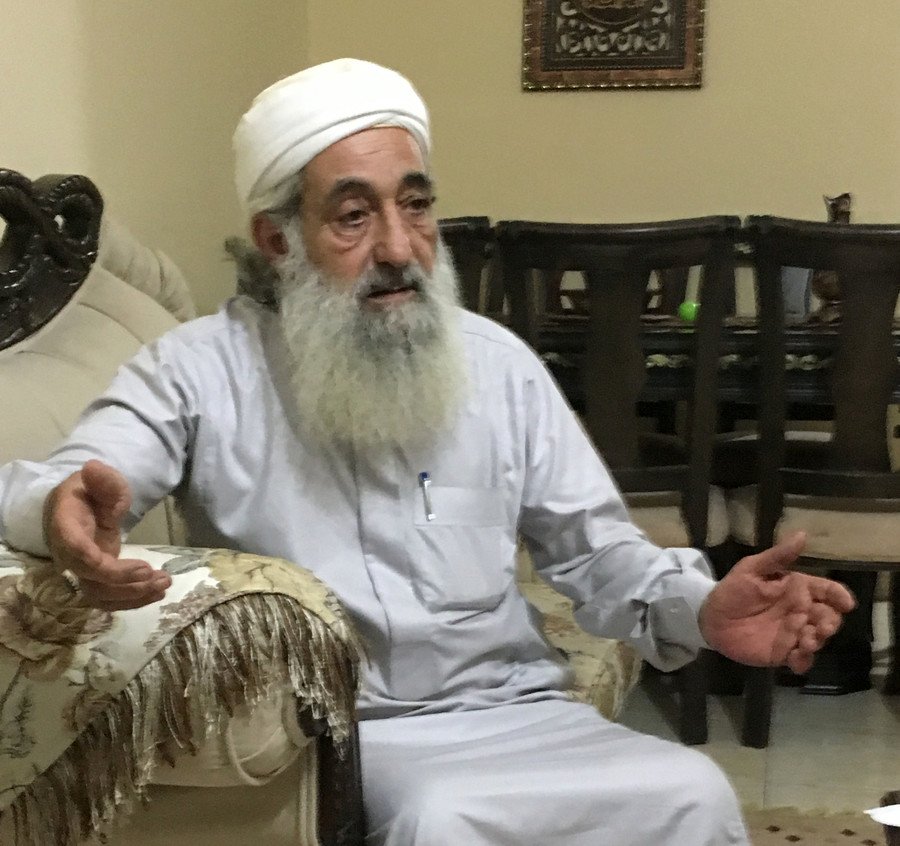
Jordan’s “production line” of extremism
While various authorities immediately condemned the killing of Nahed Hattar, as the day wore on, Jordanians noted shocking scenes of jubilation on social media. Officials slapped together a gag order, and announced that ten social media users had been identified and referred to authorities for “spreading hate speech.” The usual platitudes about balancing security with freedom of expression ensued, but there was silence on one important front.
Jordan’s King Abdullah made no statement about, or gesture toward, this unprecedented incident until the fifth day after Nahed’s death - when the monarch finally paid a condolence visit to the journalist’s family in their hometown of Fuhays.
Says a member of a prominent Jordanian political family that served the current king’s father: “King Hussein would have been there in 30 minutes.”
So, why the long silence from the most important figure of authority in Jordan?
The country is in the crosshairs of several of the most contentious political battles in the region’s recent history – and religious extremism has flourished in the vacuum created by Jordan’s inability to articulate a clear, strong direction for itself.
“In terms of numbers, Jordan has the highest number of jihadists per capita fighting in Syria today than any other country,” writes Osama Al Sharif in an op-ed in the Jordan Times.
The former president of the Princess Sumaya University for Technology Dr. Hisham Ghassib, a longtime colleague of Nahed’s, says: “The Jordanian state criticizes these terrorists, this ideology, but at the same time it feeds it.”
“Since 1975, the government has worked to Islamicize the academic curriculum in Jordan, when Ishak al-Farhan, a member of the Ikhwan, became minister of education,” Ghassib continues. “Look at the curricula. They insert verses of Koran and hadith in everything, even physics, mathematics - everything. And it is to a large extent Wahhabi in interpretation.”
“The Ikhwan played a very negative role throughout the decades in this respect,” he adds. “(Current Al- Qaeda leader Ayman) al-Zawahiri was a member of the Ikhwan in Egypt. (ISIS chief Abu Bakr) al-Baghdadi was a member of the Ikhwan in Iraq. (Founding member of Al-Qaeda) Abdullah Azzam was one of the leaders of the Ikhwan in Jordan – and a faculty member at the University of Jordan!”
It seems it can be a slippery slope from the “moderate” Ikhwan – which just last month re-joined the political process by securing 15 seats in the parliamentary elections – to “extreme” Salafism.
These two themes – the influence of religion in the academic curriculum and the influence of conservative mosque imams on society – are repeated ad nauseam by Jordanians concerned about the environment that led to Nahed’s death.
“We’re not against religion, but this is not the role of religion,” explains former Jordanian Foreign Minister Marwan Muasher, now one of a handful of scholars and activists working toward developing more secular, diverse educational instruction. “The current curriculum doesn’t teach tolerance, acceptance of other points of view, it doesn’t teach critical thinking, doesn’t teach kids to question.”
“We’re very worried about the textbooks. Changes are being driven by the security issue” Jordan now faces, and “after the murder (of Nahed Hattar), you are going to hear an even louder public opinion,” suggests Muasher.
He directs me to two vocal fellow advocates who are meticulously investigating the content of the nation’s schoolbooks – both of whom have been directed to “stay at home” by authorities who are now taking death threats much more seriously. One of them is so worried; she refuses to meet with me. The other, an outspoken 35-year former ministry of education official, Dr. Thougan Obeidat - invited me to his home to discuss these issues.
A year ago, Obeidat penned a controversial essay in Jordan’s Al Ghad newspaper called “ISIS in our textbooks.”
“If ISIS ruled Jordan, they wouldn’t even need to change our textbooks,” declares Obeidat, who has written over 50 articles detailing the problems with the texts. In 2015, the schoolbooks “were pure ISIS culture,” excluding non-Muslims entirely, quoting from violent and lawless religious sayings, characterizing women in extremely subservient contexts.
The efforts of Obeidat and others did result in small breakthroughs in the 2016 schoolbooks: a few pictures now portray women without hijab (in their homes, not outdoors), some now show men without beards. There are occasional mentions of churches – reflecting Jordan’s small religious diversity. There is discussion of “human values” - not “Islamic values” as before.
Most lessons are still preceded by a Koranic verse in the new versions, but public outrage over the amendments have resulted in several public book burnings - at least two or three last week in the capital.
I ask if the Muslim Brotherhood take a position on this issue. “The Ikhwan are not burning the books, but they are the provokers,” says Obeidat, who has received death threats and has also requested government protection. “The Ikhwan are moving everything in the environment, but they don’t appear as the face of it.”
Nevertheless, Queen Rania has stepped forward to endorse the new academic initiatives, incremental though they may be. Muasher calls her recent speech on the subject “brave.” Obeidat is grateful for this royal show of support, but notes “the ministry of education, the Ikhwan got angry at her” for taking this stand.
If you think Jordan’s academic curriculum is a minefield, wait till you hear about the country’s mosques.
Business Insider characterizes the problem thus: “The country has 4,500 preachers for its 6,300 mosques, including many who are not properly trained, creating a vacuum that has enabled extremist lay preachers to step in.”
Just like part-time preacher Riad Abdallah, the Salafist gunman who took Nahed’s life.
“Jordan’s decision makers don’t seem to understand that we are heading toward an explosion,” says Sunni cleric Dr. Mustafa Abu Rumman – a friend of Nahed’s since 2011 and his fellow activist against Islamic extremism.
In mosques today, says the English-speaking preacher, “They pray for the mujahedeen in Iraq, Syria, Chechnya and Afghanistan. They criticize the Jews and Christians and wish their supporters harm.”
Part of this is political, he claims. It comes from an “atmosphere” in Jordan since 2006 which turned against the ‘Resistance Axis’ – Iran, Syria, Hezbollah and (then) Hamas - in this region after the Israeli war on Lebanon: “Around one million Iraqi Shiite refugees were kicked out of Jordan then.”
He rejects a common Jordanian view that social and economic disparities have caused this new intolerance. These may have played a “very small part” but “even the educated, well-off middle classes have joined Daesh (ISIS).”
“A lot of our sons went to Saudi Arabia and studied there. They came back with this extreme education and ideology. In all our Sharia colleges in Jordan, they are from this idea. Now, 90 percent of our mosque imams are Wahhabi thinkers, influenced.”
From religion to politics, Saudi Arabia feeling chill of isolation (Op-Edge by @snarwani) https://t.co/DawztS0rrKpic.twitter.com/ptIuUvT4u7
— RT (@RT_com) 15 сентября 2016 г.
Abu Rumman has also received death threats. A Facebook campaign against him began, he says, after he visited Nahed’s family in the aftermath of the cartoon posting. He is also, at regular intervals, interrogated by the Mukhabarat (internal security service) over his views – which they sometimes think are too politically and religiously inclusive.
“I raised the worshippers at my mosque based on moderation, love and humanity,” says Abu Rumman, who defended Nahed’s intentions vigorously when the public outcry over the cartoon first began. “I have, in my mosque, the 10 percent who were not Wahhabized. I used to hold joint Christian-Muslim activities at my mosque – some sponsored by the Awqaf Ministry.”
But last month, that same ministry ejected him from his mosque and its accompanying housing. They had terminated his position in June, but he continued to give sermons and teach voluntarily. He tried to appeal the sudden dismissal, but says the minister himself said he “couldn’t do anything for me.”
It is ironic that a learned, moderate Sunni cleric was removed from his pulpit, even as Nahed Hattar’s killer was preaching hate at another mosque in the same city.
But it is symptomatic of the one-step-forward, two-steps-back approach of the Jordanian political establishment toward the radicalism that has permeated its every institution, whose tentacles reach into every strata of society – unchecked.
Hossein Majali, Jordan’s former interior minister says “we are facing a crisis in the Islamic world” where there is “less understanding of the basis of our religion and the old boundaries do not stop us any longer.”
“The easiest thing to do,” argues Majali “is to treat the symptom – to go to Deir Azzor and bomb ISIS. The hardest thing to do is to go to the production line. That production line is everywhere – in the United Kingdom, Pakistan, Afghanistan, so many places.”
Majali suggests “hard measures” as a solution – not just in schools and mosques, but especially in “social media, internet, media in its full spectrum.” He says government steps are in their “infancy. We’ve let it pass for a very long time and we’ve looked the other way.”
That’s hard to swallow – or accept – when it was this very country, and this very king, who delivered the “Amman Message” in 2004, to rally Islamic consensus around a unified, inclusive and tolerant vision for Islam.
Jordan has veered so far from that path in the last dozen years, it is hard to imagine an initiative that has failed more dramatically. And it is difficult to conceive that the impotent institutions that allow extremism into their schools and places of worship - that have allowed thousands to train and march into jihad - could actually formulate a decisive plan to cull this virus. Especially since the infection is everywhere, even inside its decision making bodies.
Nahed Hattar was sometimes cantankerous and difficult, single-minded and biting, but he forced Jordanians to confront their ills, with great courage and style. The diversity of his opinions lent his beloved country the color it lacked within its beige, monochromatic institutions – the kind of ideas that can move mountains, if only one has the clarity of vision to see the opportunity.
Jordan is paralyzed, however. It has no vision, will or courage any longer. Decision makers tip toe around the edge of their own irrelevance. Nahed will be missed, even by Jordanians who don’t know he is gone, because Jordan is one shade duller. And they will be one step closer to the Salafist madness that has swept the Levant, because one more barrier has fallen against takfirism.
Says his brother Majed: “These people live in the dark. They can’t even take the light of a candle – and Nahed was like the sun.”
The statements, views and opinions expressed in this column are solely those of the author and do not necessarily represent those of RT.
